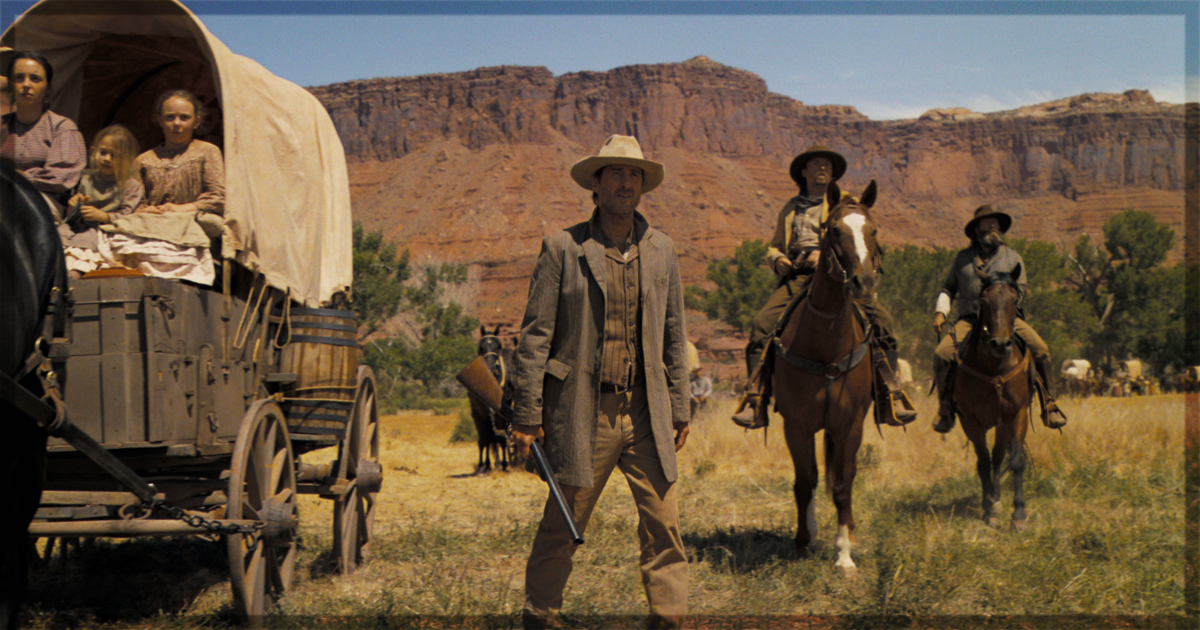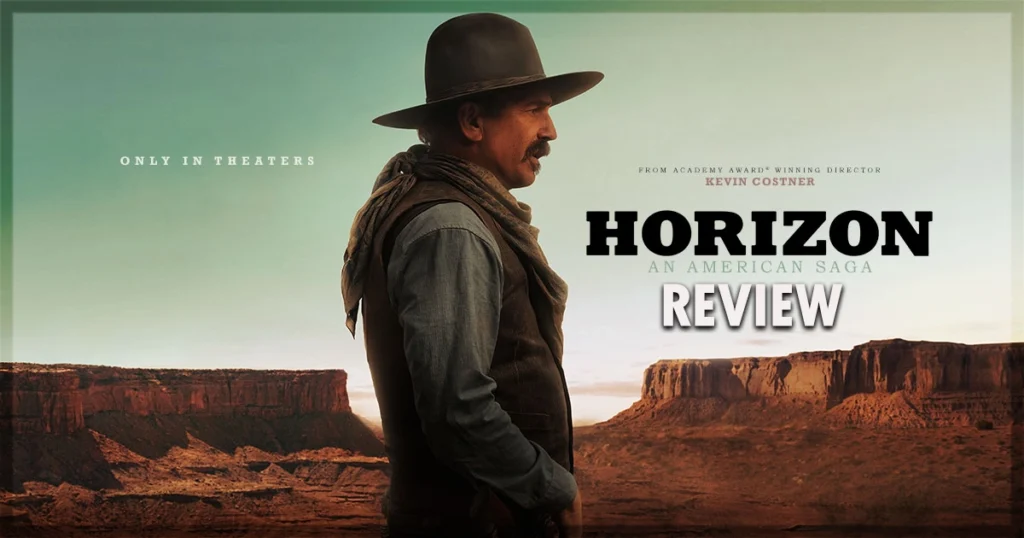The most anticipated film of the Venice Biennale this year was the epic Horizon: An American Saga – Chapter 2, which landed with something of a whimper instead of the bang it truly deserves. Kevin Costner’s project, the first part of which had its world premiere in Cannes this past May, before releasing to disappointing box-office returns this summer, is to tell the whole human history of the colonization of the American West. What is now six hours of run time still, somehow, only feels like a beginning. But when we live in a world where the Marvel Cinematic Universe can expect audiences to sit through thirty hours of movies and television to understand one joke, it would be churlish to criticize Mr. Costner’s outstanding ambition. Especially since it is a wholly fresh story, original intellectual property, adapted only from our historical past and not ripped from other art forms. It’s a Dickensian saga in moving pictures. It might not work for people with limited attention spans, but for anyone who enjoys big-picture and big-sky experiences, Horizon is not to be missed.
Its ambition starts from the very first frame, which is narrated by the surveyor’s child (Aidan McCann) whose death in the first movie takes place before its opening credits and by whose grave the town of Horizon is built. The town is at a tactically important location, a river ford used by the local Apaches, and is rebuilding after the massacre by the Apaches that claimed the lives of many settlers, including the husband and son of Frances (Sienna Miller). The town is also receiving many new arrivals, including the Hongs, the family with whom prostitute Marigold (Abbey Lee) left the child being hunted by the fearsome Junior (Jon Beavers). Hayes (Mr. Costner) ends up in Horizon in an army uniform after a situation involving a young friend of his named Anders (Michael Provost). And so does the wagon train led by Matthew (Luke Wilson, doing superb work), which contains Frances’ brother-in-law Owen (Will Patton) and his three daughters, including Diamond (an equally excellent Isabelle Fuhrman).
But the movie’s focus is not the town of Horizon this time. The largest part of the film is the slow, painful and exhausting journey of the wagon train, focusing on the English couple who were the comic relief in Chapter One, Hugh (Tom Payne) and Juliette (Ella Hunt in a role that will make her name). But Hugh is murdered in cold blood by the talkative Sig (a bloodcurdling Douglas Smith) and the silent and terrifying Birke (Roger Ivens) so that they can claim Juliette for themselves. Which they do. If she screams Sig makes sure she knows they will torture her before they kill her, though what is done to her is torture enough. And it’s all done in full view of the others in the wagon train, who mark her black eyes and how she is never let out of their sight. But even as Juliette screams in despair and publicly attempts suicide, Matthew informs her that her problems are only her own, and no one else in the train has the resources to spare on her behalf. She should be grateful she is alive and remember that everyone else has problems of their own, he says.
To say that this is an entirely new way of handling the problem of sexual assault and domestic violence on screen is something of an understatement, and it’s extra unexpected based on Mr. Costner’s previous body of work. But its unexpectedness is also an underestimation of Mr. Costner’s skills as a writer and a director (he co-wrote the script with Jon Baird), because this is also one of the most realistic versions of this kind of abuse that has ever been put onscreen.
The sense of isolation Juliette feels despite being in the middle of a community is well known to anyone who has been abused, as is the impotence of other people to intervene, who, if they want to help, don’t want to make things worse. The anger which female members of the wagon train express about Juliette’s situation, most notably by Diamond and an older woman named Annie (Kathleen Quinlan), is only matched by their powerlessness to do too much about it. The ways in which this plot strand is resolved – at least for now – is the most satisfying part of the film. And what is finally very interesting is how Owen behaves one way towards Juliette, and another towards Frances and her daughter Lizzie (Georgia MacPhail). Diamond’s jealousy of Lizzie and anger towards Owen is expressed to Frances, who only understands it when it is too late. The absence of Trent (Sam Worthington) is here most keenly felt.
The tremendous scope of this movie, which characters coming and going almost as they please, would have benefited from holding the audience’s hands a little more. The casting by Jeff Johnson, April Webster and Angela Young is extremely clear, and John Debney’s music has different motifs for different characters and situations, but there are just so many things going on it would have helped to be reminded of people’s names as they reappeared onscreen. Before the lights went down I ended up having to recap Chapter 1 for the critic sitting next to me, too. The Apache plotlines were largely dropped this time, except for the young man with the hat who befriends Lizzie, which is also a mistake. That said, J. Michael Muro’s cinematography is clean and sunny, allowing characters the space to breathe while simultaneously making sure the scope and wildness of this world is wholly felt. The set dressers did another spectacular job with the quilts again, too. And the shootout in which Hayes gets himself involves is the movie’s most expert, directly violent sequence, handled with a sharpness and panache that the film was otherwise missing.
The issue with the movie is that is definitely does feel like the set up for the second planned half of the saga, and maybe the movies would have been better received if they felt more like contained, separate movies, instead of one unbroken six-hour story. At least it has been confirmed that Chapter 3 has begun filming, and Chapter 4 is evidently in negotiations. There is so much going on here it would be a shame if we didn’t get to see Mr. Costner’s vision in its entire glory, not least because once again the fourth-billed Giovanni Ribisi, as Horizon’s founder Mr. Pickering, barely appears onscreen again. And honestly, I cannot fault Mr. Costner for trying. If we are unable to appreciate this, it’s because we don’t know the half of it.
One final note: it’s a shame that there isn’t a land acknowledgment in the credits, only one for the state of Utah.
Horizon: An American Saga – Chapter 2 recently screened at the Venice International Film Festival.
Learn more about the film at the official website for the title.


